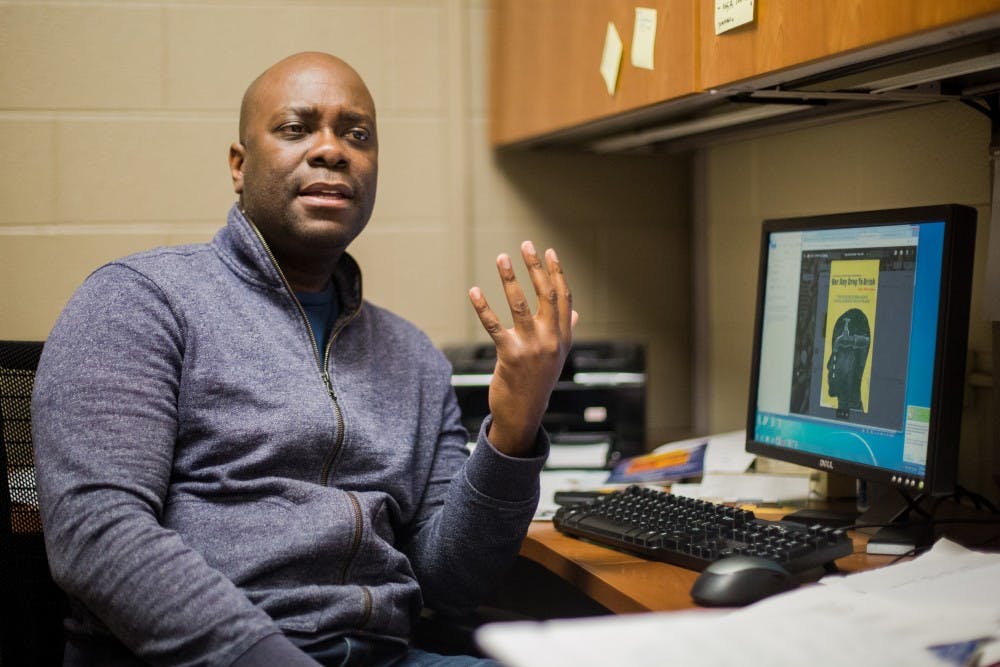Faculty member to soon finish documentary on Flint water crisis

Filmmakers at Central Michigan University are keeping the Flint water crisis in the public spotlight.
Cedric Taylor, a sociology faculty member, is working on a documentary about the Flint water crisis.
Called, “Nor Any Drop to Drink,” he hopes to finish the documentary project this spring.
“Today, you don’t really hear much about Flint and for the many residents I have spoken to, it’s not over,” he said. “It’s far from over.”
Taylor said the residents are still using bottled water to drink, bathe and cook with. The documentary looks at the developments leading up to the crisis, focusing heavily on the role of emergency management and economic philosophy.
“This documentary also sheds light on the challenges Flint Community Schools face in addressing the needs of children who are dealing with the effects of lead poisoning, as well as psychological trauma,” Taylor said.
Taylor’s inspiration to do this was to make sure Flint doesn’t get left behind in the news, he said.
Taylor has worked on the project with the help of professor Eric Limarenko in the School of Broadcast and Cinematic Arts and Coleman senior Don Blubaugh.
As the editor, Limarenko said he worked on the technical challenges of the project, helped to cultivate the aesthetic for the film and made executive decisions on shot choices.
“This has been a very fulfilling and humbling experience,” Limarenko said. “We’ve had to work on this during a lot of our off hours because we have our full-time positions as well.
Continuing Taylor’s sentiment, Limarenko stressed the importance of shedding light on the citizens of Flint.
“Decent human beings were literally poisoned by failures on many social and political levels. If our film helps raise awareness then I’ll say we did our jobs.”
Blubaugh, a BCA major, said he went with Taylor to Flint and helped film, while also contributing ideas.
“The experience was very eye-opening. I got a chance to see a lot of things I’ve never seen,” he said. “I’m excited for this documentary to get out to the public so it can open the eyes of other people, and that it can help give these people what they need to live their lives normally.”
There is a lot that goes into making a successful film, Taylor said. He added the documentary required a lot of research prior to filming.
“This project is not easy, but it’s worth it,” he said. “I often traveled to Flint alone and without a camera to actually get to know people. I got to speak with activists, government officials, scientists, teachers, and ordinary residents.”
Taylor said a venue and date for the screening has not been confirmed. Given the significant interest regarding the crisis, Taylor is going to try to inform the student body of screenings on campus soon.
“The Flint water crisis is one of the most significant man-made disasters in the United States,” he said. “We can learn from this crisis, and if we pay close attention, as future leaders we can avoid making the same mistakes.”




